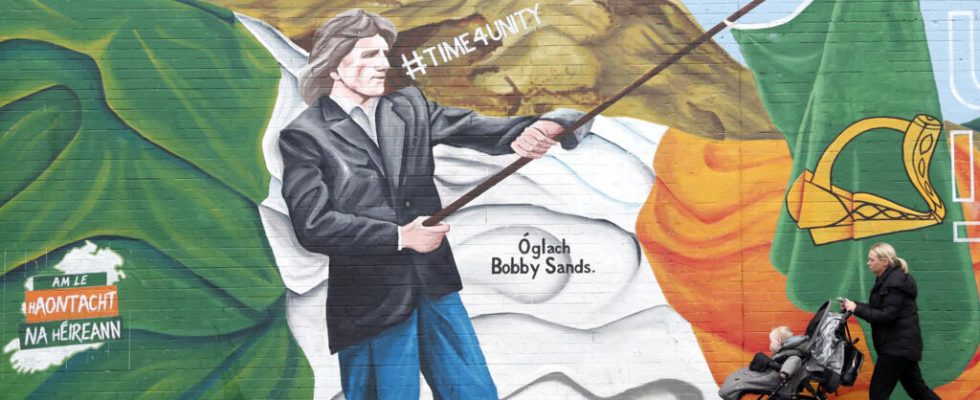Northern Ireland celebrates without jubilation on Monday the 25th anniversary of the Good Friday Agreement which allowed the British province to end a conflict of almost thirty years and caused the death of 3,600 people.
On April 10, 1998, the day of Good Friday preceding Easter among Christians, the Republicans in favor of reunification with Ireland and the Unionists attached to remaining within the United Kingdom won an unexpected peace agreement after intense negotiations involving London, Dublin and Washington. The agreement thus put an end to three decades of violence which left more than 3,600 dead, between Unionists, mainly Protestants, and Republicans, mostly Catholics, with the involvement of the British army.
► To read and listen also: Joe Biden in Northern Ireland: a highly symbolic trip
In the years following the peace accord, paramilitary groups were disarmed, the military border dismantled and British troops left. But a quarter of a century later, it’s not time to party, between political deadlock and security concerns.
Political blockage
For Fabrice Mourlon, specialist in Northern Ireland, professor at the Sorbonne-Nouvelle University in Paris, at the microphone of Romain Lemaresquierof the international service of RFI, although this agreement is historic, we cannot speak of a positive assessment. “ There was a whole period from the 2000s until 2016, let’s say, when the new institutions that were in the Good Friday agreement were put in place, where there was quite a bit of funding for the European Union, there was a whole associative sector which was quite flamboyant, etc., things were starting to be put in place little by littlehe lists. We spoke at the time of a “negative peace”, that is to say when there is no more violence supremely. So the institutions were being reformed, especially the police and the justice system. There were still problems related in particular to the Irish language. And on top of that, was grafted Brexit, which obviously accelerated tensions. In fact, since 2016, the institutions have functioned very badly and in particular since the last elections where the DUP [Parti unioniste démocratique] refuses to form a government with Sinn Fein. »
► Also to listen: 25 years after the peace agreement, Northern Ireland in a political stalemate
The institutions have been paralyzed for over a year due to disagreements over the consequences of leaving the European Union. The unionist party, viscerally attached to the province’s belonging to the United Kingdom, refuses to participate in the government as long as the post-Brexit provisions (customs controls, application of certain European rules, etc.) aimed at preventing the return of a physical border with Ireland will not have been abandoned. A renegotiation of the protocol between the EU and the UK has been rejected by the DUP in recent weeks.
Violence reignited by Brexit
If politically the situation does not seem to be progressing, economically Northern Ireland has been able to recover, explains Fabrice Mourlon. “ Before the Good Friday Agreement, the Northern Irish economy was really shaky and above all the country was not economically developed at all. Since the agreements, Northern Ireland has completely changed. If you go to Belfast today, you get the impression that it is a British city like any other. At the economic level, it has nevertheless developed. People live pretty normal lives. »
But the violence is still present. ” En this moment, there are dissensions within the paramilitary groups. All had laid down their arms: the IRA laid down their arms in 2005 and the loyalist paramilitaries, around 2010, did much the same thing. But the people still exist and Brexit has kindled those tensions a bit. »
In this context, Northern Ireland raised its level of terrorist threat after the attempted assassination of a police officer in February claimed by members of a dissident republican group.
► To listen also: Can Joe Biden contribute to appeasement in Northern Ireland?
(And with AFP)
